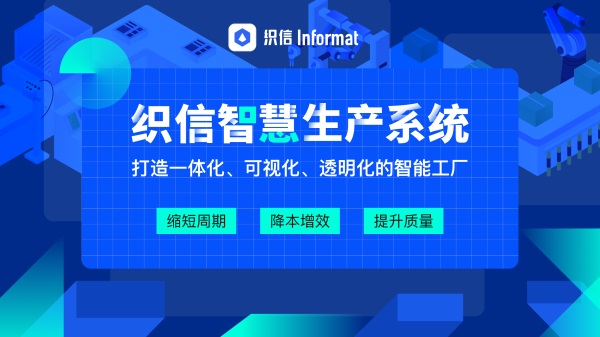mes企业管理系统服务公司

企业管理系统(ERP)服务公司提供:简化业务流程、提升效率、数据集成和实时分析。织信是基石协作旗下的产品,致力于为企业提供灵活的ERP解决方案。举例来说,织信能将多个业务部门的数据集中整合,这不仅有助于消除信息孤岛,还能实时提供数据洞察,有效支持企业的战略决策。企业使用ERP系统,能大幅降低手动操作和错误的风险,提升整体工作效率。

一、简化业务流程
企业管理系统的一个重要作用是简化和自动化业务流程。传统的手动操作方式容易出现错误且效率低下,而ERP系统则通过标准化操作流程来减少出错的可能性。系统将财务、采购、库存等业务流程整合在一起,使得企业各部门之间的信息流更加顺畅。例如,销售部门生成的订单信息可以直接传递给生产和仓储部门,减少了中间沟通的时间和错误的发生率。
二、提升效率
通过自动化和流程优化,企业管理系统能够显著提升企业的工作效率。ERP系统自动处理和分析数据,减少了员工在数据录入和分析上的时间。同时,系统提供的实时数据分析功能,可以帮助企业快速响应市场变化和客户需求。借助这些功能,企业能够更高效地管理资源,优化生产计划,从而减少浪费,提高利润率。
三、数据集成
企业管理系统的一个核心优势在于其强大的数据集成功能。通过将不同部门的数据集中在一个平台上,企业可以获得全局的视野。这种全局视野有助于发现潜在问题和优化机会。例如,财务部门可以通过查看库存数据,来更好地进行预算和成本控制。数据集成还使得企业能够更精确地追踪产品的生产和销售情况,从而优化供应链管理。
四、实时分析
实时数据分析是现代企业管理系统的重要功能之一。它使得企业能够实时监控各项关键指标,及时做出调整和决策。通过实时的销售数据分析,企业可以快速识别出哪些产品最畅销,哪些产品需要促销或清仓。实时分析还能够帮助企业更好地管理库存,避免库存过剩或短缺的问题。
五、织信:灵活的ERP解决方案
织信作为基石协作旗下的产品,为企业提供了一种灵活的ERP解决方案。它不仅具有传统ERP系统的核心功能,还具有高度的可定制性,能够根据企业的具体需求进行调整。织信的平台支持多种集成方式和应用扩展,企业可以根据自身的发展阶段和业务需要,灵活地增加或调整功能模块。这种灵活性使得织信成为中小型企业和大型企业的理想选择。
企业在选择ERP服务提供商时,应考虑多个因素,如系统的功能、集成能力、用户界面友好度、售后服务质量等。织信以其强大的数据集成功能、灵活的定制选项和优秀的客户支持,成为众多企业的首选。了解更多信息,请访问织信的官方网站:织信官网。
相关问答FAQs:
FAQ for MES Enterprise Management System Service Companies
What is an MES (Manufacturing Execution System) and how can it benefit a company?
An MES, or Manufacturing Execution System, is a comprehensive software solution designed to manage and monitor work-in-process on the factory floor. It serves as a crucial link between enterprise resource planning (ERP) systems and the manufacturing operations. The primary benefits of MES include improved production efficiency, enhanced quality control, and real-time visibility into manufacturing processes.
By implementing an MES, companies can streamline their operations, reduce downtime, and optimize the use of resources. MES systems provide detailed insights into production activities, allowing for better decision-making and faster response to issues. They help in tracking performance metrics, managing inventory, and ensuring compliance with industry standards and regulations.
Furthermore, MES solutions offer integration capabilities with various other systems such as ERP, supply chain management (SCM), and customer relationship management (CRM). This interconnected approach facilitates smoother operations, accurate data flow, and enhanced overall productivity.
What factors should be considered when selecting an MES service provider for a company?
Choosing the right MES service provider is crucial for maximizing the benefits of an MES system. Key factors to consider include:
-
Industry Expertise: Ensure the provider has experience in your specific industry. Different industries have unique requirements and regulations, so a provider with relevant expertise will better understand your needs.
-
Scalability and Flexibility: The MES system should be able to scale with your business growth and adapt to changing operational needs. Providers offering customizable solutions can better accommodate your specific requirements.
-
Integration Capabilities: Check if the MES can integrate seamlessly with your existing ERP, SCM, and other enterprise systems. Effective integration ensures smooth data exchange and operational efficiency.
-
Support and Maintenance: Assess the level of support and maintenance services offered by the provider. Reliable support is essential for addressing issues promptly and minimizing downtime.
-
User-Friendliness: The system should be intuitive and easy for your team to use. Training and support should be available to help your staff adapt to the new system.
-
Cost: Consider the total cost of ownership, including initial implementation, licensing, and ongoing maintenance costs. Ensure that the investment aligns with your budget and offers a clear return on investment.
How does an MES system contribute to improved production efficiency and quality control?
An MES system enhances production efficiency by providing real-time visibility into manufacturing processes. It enables manufacturers to track the status of each work order, monitor equipment performance, and identify bottlenecks. This visibility helps in optimizing production schedules, reducing downtime, and improving overall throughput.
For quality control, MES systems offer features such as real-time data collection, automated quality checks, and compliance tracking. By continuously monitoring production variables and quality parameters, MES systems help in detecting defects early and ensuring that products meet quality standards. Automated quality assurance processes reduce human error and ensure consistent product quality.
Additionally, MES systems support continuous improvement by providing detailed analytics and reporting. Manufacturers can analyze production data to identify trends, measure performance, and implement corrective actions. This data-driven approach facilitates ongoing improvements in production processes and product quality.
By integrating MES with other enterprise systems, companies can achieve a cohesive approach to managing operations, leading to more efficient production and higher quality standards.
版权声明:本文内容由网络用户投稿,版权归原作者所有,本站不拥有其著作权,亦不承担相应法律责任。如果您发现本站中有涉嫌抄袭或描述失实的内容,请联系邮箱:hopper@cornerstone365.cn 处理,核实后本网站将在24小时内删除。
最近更新
立即开启你的数字化管理
用心为每一位用户提供专业的数字化解决方案及业务咨询




